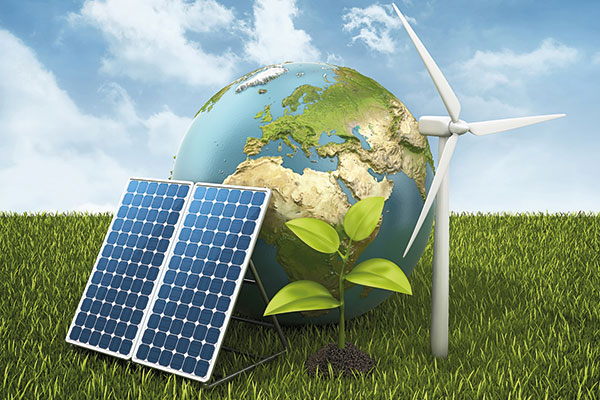Further changes for popular clean energy index
The index has been subject to ongoing consultations due to large ETF inflows.
4th October 2021 11:45
by Tom Bailey from interactive investor
The index has been subject to ongoing consultations due to large ETF inflows.

The highly popular iShares Global Clean Energy ETF (LSE:INRG) will from mid-October onwards see another overhaul of the index it tracks, due to changes to the methodology of the S&P Global Clean Energy Index.
The ETF, which appears on interactive investor's ACE 40 list of ethical investments, experienced a surge of inflows last year, due to increased investor interest in renewable energy. As a result, there were fears surrounding the liquidity of the ETF, leading S&P Global Indices to increase the number of companies in the index. The index has been subject to ongoing consultations since.
- iShares Clean Energy liquidity fears show wider thematic ETF issue
- How to understand the liquidity risk of thematic ETFs
- The ETFs Show: thematic investing is all about sectors of tomorrow
The first change is the inclusion of emerging market listed companies. The index has previously been restricted to companies in developed markets. However, with China and other developing economies becoming increasingly important players in clean energy, going forward the index will include companies listed in such countries.
- Discover: Sustainable Investing Ideas | Sustainable Investment Funds | Top ETFs
The index will also introduce “new scopes” to capture the clean energy theme. These include energy storage, smart-grid technologies and meters, electric car makers and companies involved in “efficient energy application”. The index has proposed splitting companies into “production” and “non-production” segments.
- The ETFs Show: environmental, China edtech, and cannabis fund
- China ETFs see a surge of buying – is buying the dip too risky?
- Want to invest ethically? ii’s ACE 40 list of ethical investments can help
Certain metrics used to select companies have also been tweaked. The new rules require companies to derive at least 25% of their revenue from clean energy production, or a non-production green energy-related business. Meanwhile, utility companies will be included if they either generate at least 20% of their power from renewable sources, or have received “renewable utilities” classification from Global Industry Classification Standard (GICS). The index has also enhanced its carbon intensity screen.
These articles are provided for information purposes only. Occasionally, an opinion about whether to buy or sell a specific investment may be provided by third parties. The content is not intended to be a personal recommendation to buy or sell any financial instrument or product, or to adopt any investment strategy as it is not provided based on an assessment of your investing knowledge and experience, your financial situation or your investment objectives. The value of your investments, and the income derived from them, may go down as well as up. You may not get back all the money that you invest. The investments referred to in this article may not be suitable for all investors, and if in doubt, an investor should seek advice from a qualified investment adviser.
Full performance can be found on the company or index summary page on the interactive investor website. Simply click on the company's or index name highlighted in the article.